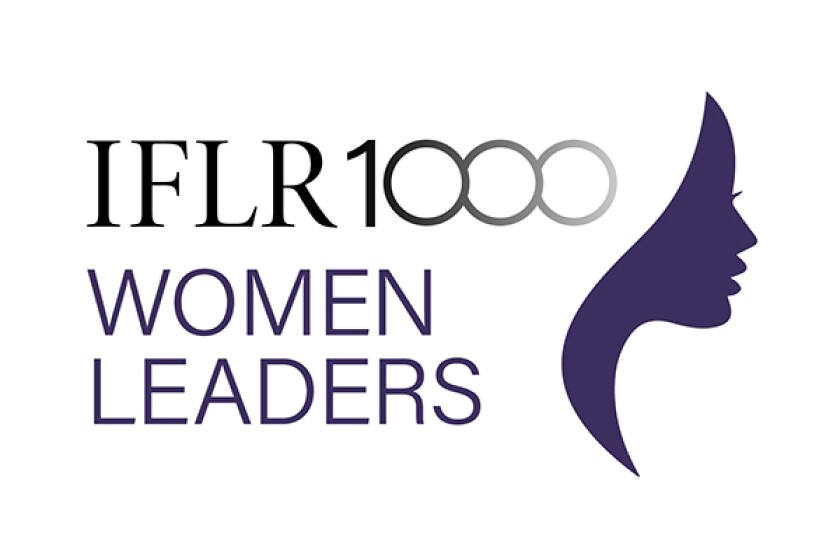How do you think the covid-19 pandemic has or will impact gender parity in the legal profession within your jurisdiction?
The pandemic has demonstrated just how agile work can be in the legal profession. Embracing flexible working for all genders has the potential to change the legal landscape dramatically in the future. Working from home allows people to be much more efficient with their time. No time is wasted on commuting or waiting around before meetings or waiting around court, as all of these things are happening virtually. It also means more family time.
Having said all of that, research suggests that certain consequences of the pandemic such as home schooling, household chores and caregiving responsibilities have been shouldered to a greater extent by women. Organisations need to be live to these issues and to the actions they can take to encourage and support the continued success and progress of women in the workforce so as to ensure women can continue to thrive both personally and professionally.
There are several critical areas in which employers can take action, from making flexible working the norm, emphasising trust and empathy, providing networking and mentoring opportunities, implementing learning experiences that work for employees’ daily lives, addressing unconscious bias in succession and promotion planning, and making diversity, respect, and inclusion non-negotiable values that are lived out in the everyday work culture. The most important thing to remember is there is no one size fits all approach.
What obstacles have you had to contend with during your legal career that related to your gender?
Julie Murphy-O'Connor:
As a mother of three, I have had to navigate all of the usual issues that face women across legal and other professions, including periods of absence for maternity leave, unconscious bias, and juggling the need to be always on at work and at home.
The key to making career and family work in a sustainable way is to be organised and have a steady support network of whatever form. It helps when both parents contribute to the children’s upbringing and it’s important to prioritise finding childcare arrangements that work well for both the children and the parents. Although it can be expensive in the short term, it is worth investing in this for the long term.
From the perspective of gender equality how does the environment in which you work now compare to the one you began your career in?
Prospects for progression are more encouraging for women today than when I started out 25 years ago. When I started out there were no working mothers who were partners in the firm to act as role-models. There was no value placed on diversity and inclusion. The few that did progress to senior positions in the years that followed were often stereotyped and frequently had to work harder than many of their male counterparts to get to the same level.
Nowadays, both men and women are for the most part under similar pressures in terms of juggling childcare demands, which of itself creates a more equal environment. There are also so many more successful role models for women.
In Matheson, we have clear gender diversity goals that are underpinned by measurable outputs, including a commitment to have 40% female representation on our leadership team by 2024. Already 40% of our partners are women, this represents considerable progress, in the last five years in particular. Notably, the business has also grown from strength to strength in this period. Matheson is now the largest law firm in Ireland.
Not only do we positively demand diversity and inclusivity to be visible in everything that we do, but a factor not to be underestimated is that our clients now also actively expect and demand that their professional advisors demonstrate this.
I am confident that progress in this regard will continue exponentially, with more and more females in leadership roles who will act as role models and mentors for those starting out in their careers.
I would love to think we are at a point where leadership positions are something that women starting out in their careers at Matheson not just aspire to, but fully expect to achieve.
Do you feel the legal profession within the jurisdiction where you are based treats women and men equally? If there are inconsistencies where are these most noticeable?
There still is more to be done across the legal profession in Ireland. The Law Society of Ireland is doing its bit, most recently by inviting its members to commit to its Gender Equality Diversity and Inclusion Charter. All of the larger professional firms have diversity and inclusion firmly on their agendas. However, women are still notably under-represented at the Commercial Bar. This is an area in which the entire profession has a responsibility to drive change, including by instructing counsel more mindfully.
To ensure change happens and opportunities are truly equal, every firm and every branch of the profession should set themselves clear and ambitious goals that they must achieve within set timelines, embed a culture within the organisation that ensures that anything less than a truly diverse approach to every decision they make - whether it be hiring, promotion or how they resource their flagship cases – will not be tolerated.
What initiatives do you have in place at your firm to promote gender equality? Does your firm have other diversity programmes?
In implementing diversity and inclusion (D&I) at Matheson, our initial focus has been on the following six pillars:
multiculturalism and social mobility,
gender,
generational,
family and working parents,
disability and
LGBTQ+.
To support these pillars, we have numerous programmes running including, by way of example, Matheson’s D&I scholarship in partnership with Trinity College Dublin; the Matheson maternity and paternity programmes; the Matheson life stages series; unconscious bias training; the Matheson open doors programme and the Matheson agile working programme. Matheson was also one of Ireland’s founding members of the OUTLaw Network which is aimed at promoting the inclusion of LGBTQ+ employees across the legal sector in Ireland. On gender diversity, we have clear goals that are underpinned by measurable outputs, for example our commitment to have 40% female representation on our leadership team by 2024, and this work will continue.
We have worked hard to continue many of the programmes and initiatives virtually during the pandemic, as we believe it is as important now as it has ever been to maintain the connectivity and sense of belonging of our people, especially when working from home.
Matheson has been recognised by the Irish Centre for Diversity for its work in D&I and awarded its Investors in Diversity Gold Standard. This recognition is a significant milestone for us and represents a clear validation of the D&I initiatives which we have embedded. Achieving the D&I Gold Standard was made possible through the collective work and dedication of Matheson colleagues across the firm. In 2019, we were the first Irish law firm to achieve the Silver Standard, and in 2020 we were the first organisation in Ireland, across all sectors, to achieve the Gold Standard.
The Financial Times has recognised Matheson’s commitment to D&I in its Innovative Lawyers Report 2019, ranking Matheson as Ireland’s most innovative law firm for D&I. In May 2020, we were also ranked the seventh most gender-diverse law firm in Europe based on the number of female partners at the firm (The Lawyer, European 100, 2020).
Whilst it is great to receive this external recognition, seeking internal feedback and listening to it is very important to us, as is constantly challenging ourselves on how we can continue to evolve and improve.
What advice would you give to women in junior positions to encourage them to work towards attaining senior positions?
Don’t cut off your career branches too early - don’t step away from your career based on what might happen.
Don’t be afraid to put yourself out of your comfort zone and spot growth opportunities when they present themselves – even if you think you’re not ready. Growth and comfort tend not to co-exist.
Don’t be too hard on yourself. Be resilient. When things go wrong, dust yourself off. Learn and move on.
Remember, it is never too early in your career to add value and to differentiate yourself. Don’t be afraid to come forward with ideas as to how to do things better. Use your millennial skills, whether by improving your practice’s online presence or introducing technological solutions to improve service delivery.
Find a niche area of law as a specialty. This will greatly increase your value.
Finally, when the going gets tough, hang in there. If you are in the throes of early motherhood, you may find it difficult to believe now, but one day your child will grow up and tell you what an amazing role model you are and how proud of you they are.
If you could introduce one policy related to gender equality in the legal profession what would it be?
Mentoring programmes are helpful and for those that find a good mentor and champion, it can be a game-changer.
More fundamentally, what women need in order to progress in the legal profession is (1) respect; (2) flexibility; (3) support and encouragement and (4) for the organisations in which they work to have clear, measurable and time-bound goals around equal representation at the very top.


